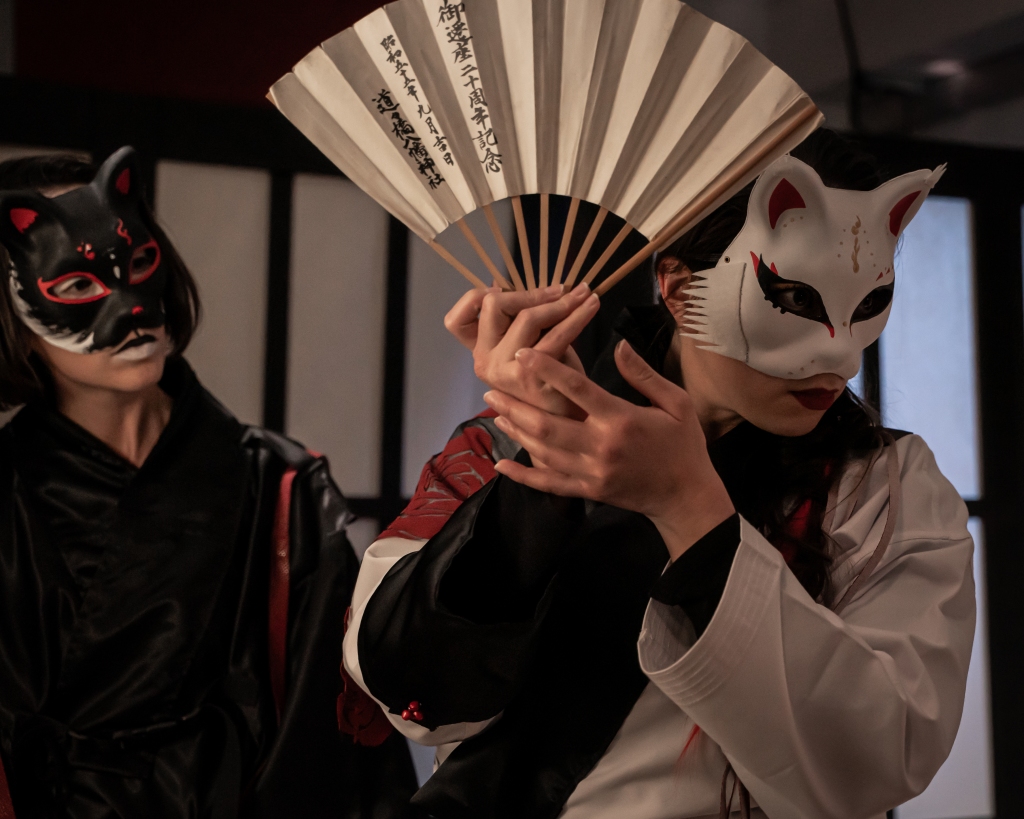
Immersive, supernatural “Zotto” is back for a limited run at Sakura Square
Last Updated on July 17, 2023 by Admin
[ad_1]
Something both wounded and healing is unfolding at Sakura Square in downtown Denver. After a successful run last fall, the Japanese Arts Network’s immersive experience, “Zotto: A Supernatural Folktale,” has returned for a limited encore (it closes July 30).
Living up to its title, the richly textured show — written by the Network’s founder, Courtney Ozaki — enlists the supernatural beings of Japanese folklore to recount the story of three generations of Japanese American women. A cat, a fox and the trickster creature called a kappa prove indispensable to this evocative undertaking.

Prior to the show’s start, Ozaki explains a few guidelines as well as some emotional ones: Audience members are allowed to say “no” to the characters if their requests make them uncomfortable, Ozaki promises. She also tells the gathered that “Zotto” was created with the hope that all of us can “learn and grow from the tragedies of the past.” With that, attendees head to the first room of the night: the waiting room of Zotto Holistic Health, where Dr. Kitsu treats spiritual unease.
A cat spirit, Kaibyo (Nicole Dietze), welcomes us. Performed with a dancer’s grace, Kaibyo impresses with her feline suppleness and amuses with her cat-kooky curiosity. (What’s that red string? Yarn?)
Kaibyo pulls and pulls on the yarn and then teases an audience member or two with a gentle game. On each seat is an intake form for the patient we’ve ostensibly arrived to help. Aspiring manga (Japanese comic) artist, Miya (Charlotte Quinn) has been suffering a malaise of sorts, a yearning to understand her grandmother Yuri’s past and by extension her great-great-grandmother Obachan’s story, too. Both Yuri (Minkyung Cecillia Kim) and Obichan (a terrifically engaging Joyce Yuriko Cole) experienced internment in the U.S. during World War II.
The terrain of “Zotto” is as multidimensional as the Spider-verse. With impressive sound design and the use of scents, it is also multisensory. The action moves the audience through an in-between space of present, past and parallel; the natural and the supernatural; descendants and ancestors. Are we helping Miya or are we the audience characters in a manga she is drawing to wrestle with her family’s history? The fox spirit Dr. Kitsu (Sarah Hirose, but I saw it with understudy Liz Kirchmeier) greets us to explain more.
The warren of rooms that the audience is guided through also includes a stocked grocery store, a hotel room, and a wooden barracks structure. There is also a sweet little bar with alcoholic and non-alcoholic libations. My use of that word may sound a little highfalutin, but it’s also apt given the many ghosts haunting the show that are worthy of tribute.
Our immersion comes not just through the storytelling but also in the show’s many objects steeped in cultural significance and weighted with personal sentiment: from rose petals to bowls of steamed rice, from those little cat figurines (maneki neko) with fists raised for good fortune, to a suitcase that signifies political misfortune and carries all a character’s worldly possessions.
As with many children and successors of traumatized people, Miya has been affected by the blotted-out past of her parents and grandparents and, yes, great-great-grandparents. Obachan and her children were wrenched from their California farm and sent to Colorado’s Camp Amache, the World War II relocation camp in Granada. And “Zotto” gently insists on an intimate historical reckoning with that injury.
“Miya-chan, don’t ask such questions,” Yuri scolds her grandchild when asked about how she came to live in Denver. “We must always look forward and work hard — no point in looking back.”

But “Zotto” makes an eloquent and stirring case that there is a point to looking back. In addition to a visit to the Amache barracks, we sit with Yuri at Denver’s Burlington Hotel, a way station post-imprisonment, and visit the family grocery store.
Looking back while being present in the moment is a challenge and a rare gift. Through a beautiful density of ideas and objects, beguiling spirits and profoundly human characters, “Zotto” pulls off the culturally cerebral part of that equation. Through strong performances, the hilariously mischievous work of Kii Clark as the kappa and the unforgettably crushing and curative monologue by Obachan’s Cole, it delivers the gift.
Pass the tissues, please.
IF YOU GO
“Zotto, A Supernatural Folktale”: Primary writer Courtney Ozaki. Directed by Ozaki. In collaboration with Luster Production Theatre Artibus, Control Group Productions and Starry Night Productions. Featuring Charlotte Quinn, Minkyung Cecillia Kim, Joyce Yuriko Cole, Sarah Hirose, Nancy Dietze, Kii Clark. Liz Kirchmeire and Leta Keane. At Sakura Square, 1905 Lawrence St., through July 30. For tickets and info: JA-NE.org.
Subscribe to our weekly newsletter, In The Know, to get entertainment news sent straight to your inbox.
[ad_2]
Source link




